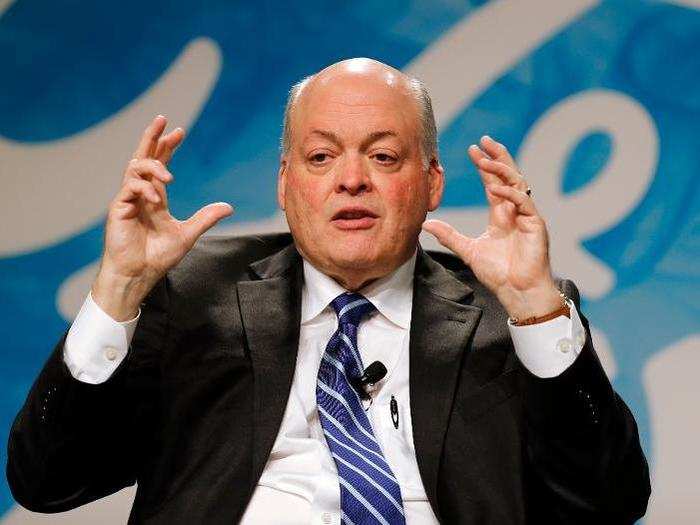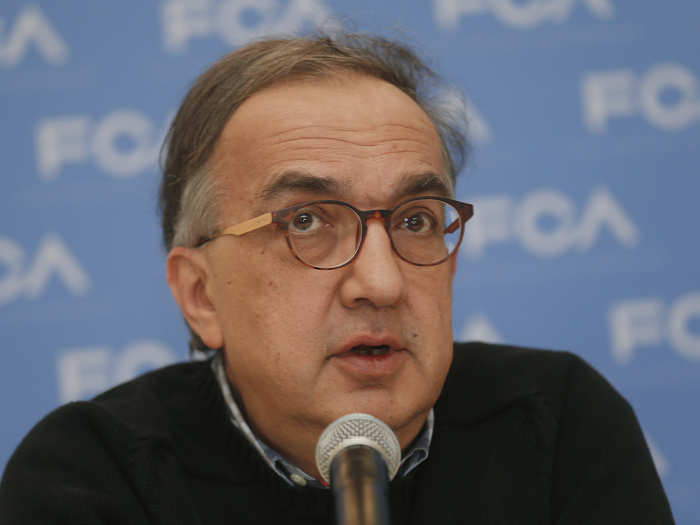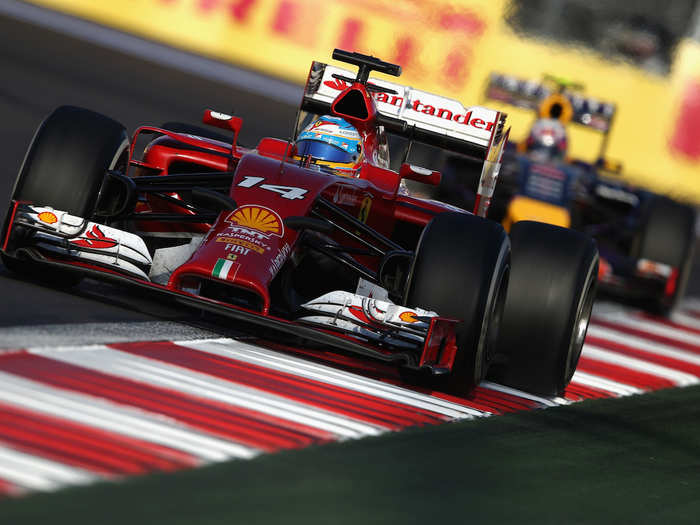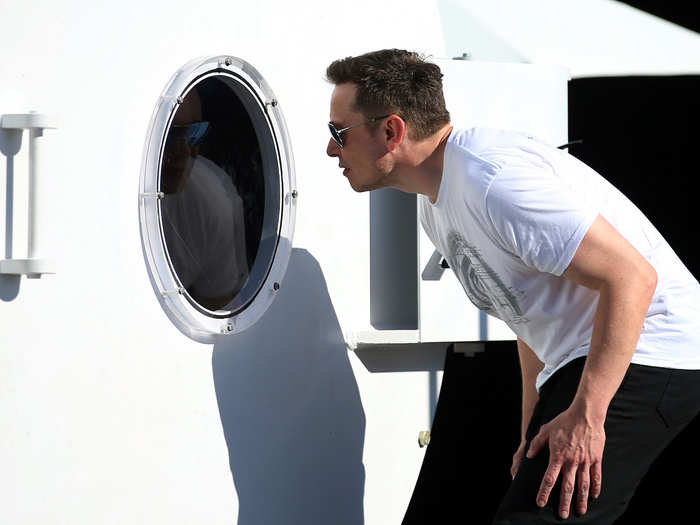- Home
- slideshows
- miscellaneous
- The contrast between Tesla and the rest of the auto industry is terrifying
The contrast between Tesla and the rest of the auto industry is terrifying
Tesla vs. GM

Tesla vs. Ford

With a management shakeup last year that led to the ouster of then-CEO Mark Fields and his replacement with a more visionary personality in Jim Hackett, Ford has clearly been looking to emulate Tesla's Wall-Street-attractive story.
But Ford also makes the bestselling vehicle in the US, the F-150 pickup truck. This thing can be mass-produced in absolutely staggering volumes and has been selling nearly a million units annually. And although it isn't priced anywhere near what Tesla charges from its Model S and Model X luxury vehicles, the F-150 throws off huge profit margins.
The F-150 can witness sales dips, but for the most part, it's nearly an invulnerable product. Ford can always count on it, like an insurance policy.
Tesla, by contrast, has probably topped out in its luxury segment and now has to pull off a potentially impossible stunt: sell hundreds of thousands of electric sedans to a market that has shown limited interest in EVs (they're only 1% of the global market) and that ... doesn't want sedans.
The four-door is dying. FCA has given up on them in the US, and Ford is heading in that direction. GM will likely make the shift in the next year. Ferrari doesn't sell them.
Tesla has promised to bring a crossover SUV, the Model Y, to market in the next few years, but at the moment it has no place to build the vehicle. That leaves Tesla trying to make the Model 3 into its F-150. And that's just not going to happen.
Tesla vs. FCA

Like Tesla, FCA has an outspoken CEO in Sergio Marchionne. But unlike Musk, Marchionne is an accountant by training and understands the biggest risks to a carmaker: debt and cash burn.
Since taking over Chrysler after a government bailout and bankruptcy, Marchionne has focused on making the Jeep brand a profit-minting beast and maintained the RAM pickup brand's number-three-market position behind Ford and Chevy/GMC.
This has generated the cash flow that he needs to pay down FCA's debt and to bolster the carmaker's cash balances. It's actually not that complicated. He inherited a ruined balance sheet, but one that was getting a fresh start. And he has done what's needed to transform it into a fortress.
Over the past two years, FCA shares have outperformed Tesla shares by 200%. So which was the better "growth" investment? (And that outperformance took place, shockingly, even after FCA spun off Ferrari, which represented a huge chunk of value in the company.)
The big difference between Tesla and FCA is that the former has been run like a Silicon Valley casino that has somehow staved off functional insolvency thanks to treating Wall Street like an ATM, while the latter has been run like the tightest ship in the industry, based primarily on well-defined financial goals that have all been met.
If you were looking for a CEO to run Tesla in the event that it, too, goes bankrupt and Musk is deposed, Marchionne would be first on your list.
Tesla vs. Ferrari

As it turns out, Marchionne is also CEO of Ferrari, but the contrast between the Italian carmaker and Tesla owes more to the similarity between the companies than to leadership differences.
Ferrari, like Tesla, is a brand built on a story, and for Ferrari, that story is racing. Yes, Ferrari has sold plenty of road cars since the middle of the 20th century, and it has sold them for a lot of money. But at its core, Ferrari is about winning Formula One races.
That mission has been pursued with absolute concentration. The F1 car for a given year is, ultimately, the only Ferrari that really matters. There is no business case for the expensive road cars without it.
Tesla, on the other hand, has a Ferrari-like portfolio of vehicles, in terms of size (just three cars currently coming out of the Tesla factory, versus five for Ferrari). There's also a vision, although unlike Ferrari it isn't predicated on winning races. Rather, it's Musk's desire to hasten humanity's exit from the fossil-fuel era and to mitigate global warming.
Tesla, unfortunately, isn't modeling itself on Ferrari, which would actually be logical. Instead, it's aiming to become GM or Toyota, producing cars at a gigantic scale. Tesla's core business — luxury vehicles — shares Ferrari's sexiness and preoccupation with performance.
It's larger, of course — Ferrari sells less than 10,000 cars per year — but Teslas are also far less expensive. An entry-level Tesla luxury vehicle is under $100,000, while the cheapest Ferrari is $200,000.
Musk would obviously like to be half Ferrari-half GM, but this is an impossible circle to square. The tragedy is that as Ferrari talks about going electric, Tesla is already there. The problem is that the CEO simply can't accept that destiny.
So what's the bottom line?

The elephant in the room for Tesla is that even as the US auto market has boomed for the past three years, posting record sales numbers and enabling GM, Ford, and FCA to print money selling profitable pickups and SUVs, Tesla has managed to lose billions while endlessly promising that the negative trend will reverse.
Ferrari staged one of the most successful IPOs in the history of the industry and has also minted steady profits. Tesla's own IPO, dating back to 2010, also has to be considered a wild success, but stock market results contrast depressingly with Tesla's glaring lack of profits.
As I've watched the Tesla bulls and bears dramatically diverge over the past six month, I've increasingly focused on what I think is the fundamental of fundamentals for a carmaker: Can you make a good profit in a sales market where profits are there for the taking?
The traditional auto industry has achieved this; Tesla, the outlier, hasn't.
If that situation doesn't change soon and lead to sustainable future margins, Tesla won't make it when the existing market dynamics shift and losses for the industry return.
Popular Right Now
Popular Keywords
Advertisement